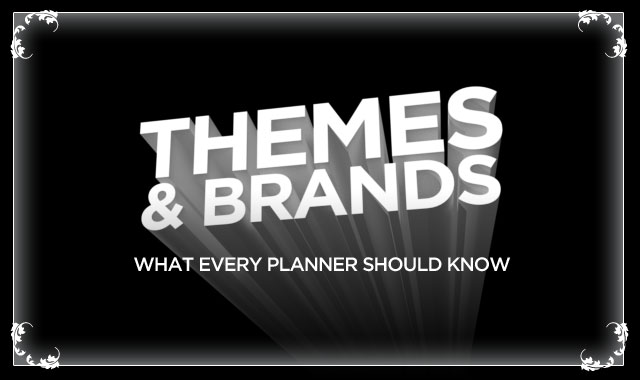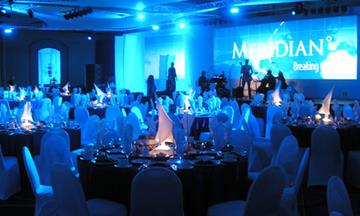In 1998, Tom McCulloch joined metroConnections and is Vice President of Marketing and Conference Services. He is responsible for strategic marketing, channels marketing and along with partner, Mike Graves, leads the ongoing technology offerings in the Conference Services division. He is a graduate of the University of Minnesota - Duluth. In 2007, McCulloch was awarded Meetings and Events Magazine "Hall of Fame - Conference Planner of the Year.”
What Every Planner Should Know About Themed Events
Q. Briefly tell me about metroConnections
A. Since 1984, metroConnections has provided complete conference, event, stage production and transportation services for meeting and event planners nationwide. The metroConnections team specializes in the design and implementation of themed events, stage productions, transportation, tours and conference program logistics and meetings. We also offer audio/visual and production services and are the creators of Attend-eSource®, a web-based solution that includes elements such as online registration and custom-built event websites.
Q. Tell me about planning themed events — any special considerations?
A. The key to success is integrating the brand into the strategic plan from the outset, and then managing it throughout the process to ensure cohesion with your message.
An event’s goals and key messages should be based on a strategic plan set forth by the organization’s leadership. Depending on the goals, the key messages can vary. For example, if the meeting is a corporate training event, the messages should encompass continuing education and actionable tools to help train teams and make them more productive. In contrast, if the event brings vendors and purchasers together, the goals should focus on how to best create an environment that allows for collaborative meetings and networking sessions, while enabling vendors to showcase their products/services. In the case of national sales meetings, the objective is typically to motivate.
With the goals and messaging identified, it’s essential to explain the vision to key vendors and partners. Further, it’s crucial that the identified goals and key messages support the organization’s brand. Not only will this lay the groundwork for the event, but it will serve as the building blocks for how customers and key stakeholders perceive your value and offerings.
Q. When planning a themed event, how do you handle varying identities, such as the company logo and a conference theme?
A. One common area of confusion is whether to have a separate brand and/or logo for your event, or simply use your organizational brand. As a general rule, a company has a brand, while an event has a theme that supports the brand. However, there may be a sub-brand, such as a conference logo and theme. These branded elements should be reflected on every attendee touch-point from the registration web site and info on-site, to lobby signage, the stage, collateral, post event surveys and more. To ensure the sub-brand is successfully integrated, it’s vital to determine it can work together with the primary brand without competing against it and creating confusion.
Integrating the brand should include carrying it throughout email invites, on the custom-built registration website, signage throughout the venue, the opening session video and more. Be sure to think beyond marketing collateral as company names and logos can be splashed onto the flooring and walls using decals and customized lighting elements. If possible, develop renderings before the event so the team can visualize the stage, camera shots, lighting, transition cues and more.
Q. Food trucks are very trendy. Have you planned an event that incorporated them?
A. Yes, we have! Incorporating these mobile eateries into an event can create a fun, relaxed experience for attendees, while also showcasing local flare or national cuisine. Also, no matter how exciting the projections are for next year, we know the importance of getting attendees to move around and engage, and a change of venue is often the answer. By adding a little flair, you can easily increase overall morale, attendee satisfaction and create a great environment that is conducive for attendee engagement. Further, the use of food trucks shows guests it’s not the “same ol’” buffet or plated lunch they’ve come to expect.
If there are restrictions to using food trucks indoors, or there isn’t enough space, this can be a great way to expand the space to include outdoor elements and increase venue capacity for guests.
The variety of food options is yet another benefit. This is especially important when planning your menu for a group with varying food allergies and preferences. In fact, there are many options for healthy, vegan and vegetarian cuisine, as well as more traditional choices.
Q. What are some tips for integrating a food truck into an event?
A. First, identify the type of truck to feature –- dessert, lunch or breakfast? When are the trucks being used? For an afternoon conference break? A fun midday corporate lunch? Or as the event showpiece? Next, decide where the trucks will be used – inside or outside, public space or private property?
Be sure to work with an experienced event management team who not only understand the logistics of the truck -– cooking equipment, space requirements, power -– but also the coordination of permits, venue/hotel regulations, city ordinances, and contracts. For example, some venues may have restrictions or additional fees related to bringing in outside catering companies. Additionally, venues might not allow propane tanks or other equipment (such as fryers) indoors that might be considered a fire hazard, so the trucks would be restricted to outside. The venue should be able to help you understand any mandatory safety regulations including any city or other ordinances.
Q. What are some best practices for planning a themed event?
A.
1) Acquire leadership direction and buy-in
2) Plan early
3) Develop a clear strategy as your first phase of planning
4) Stay true to your brand and objectives
5) Communicate goals to key planners, vendors, stakeholders and onsite staff
6) Track key performance indicators to help plan for future meetings
7) Provide easy access to high resolution artwork for all vendors and stakeholders
8) Test run the brand with a small group of attendees so as to avoid any accidental misunderstandings (cultural barriers or business unit barriers)
Find Mentioned Suppliers
Related Suppliers & Featured Content Advertise with meetingpages and create a complete profile for your facility, attraction, activity or service.
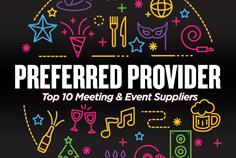
Preferred Provider — Top 10 Minnesota Meeting & Event Suppliers
Spotlight | September 16, 2020
Making your event a smash hit can often rest on the services of vendors outside your organization. For quality, dependability, timeliness, and value, we recommend you check out these Minnesota event suppliers who will come through for you every time. Read more...
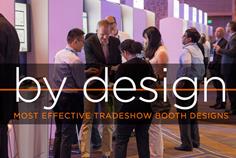
By Design — Most Effective Tradeshow Booth Designs
The Scoop | By Sydney Wolf, Sales Manager | November 30, 2016
An effective trade show booth design goes beyond flashy signage and exciting swag. Read more...
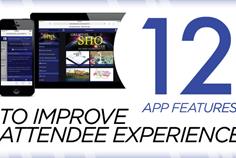
12 App Features that Improve Attendee Experience
The Scoop | By Tom McCullugh, Owner | Chief Marketing Officer | October 27, 2014
Eighty percent of event attendees (in North America) now use smartphones and on average, spend more than 60 hours a week consuming content on their mobile devices. Read more...

Need to Free Up Some Time? Get More Mobile at Your Meetings.
Ask the Expert | By Brad Neuman, Director | May 05, 2011
Meeting and Event Planning Tip: How can mobile technology help me be more productive? Read more...
